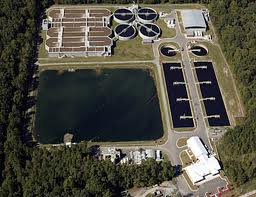 There was a fascinating story on “The Morning Edition” today (August 16, 2011) about the power of words. Water supply authorities and engineers are having a difficult time convincing citizens that it is safe to recycle the treated waste water into drinking water. The water supply developers in the Tampa Bay area have first-hand experience with this issue. Water suppliers in California were frustrated that they could not convince the consumers that the water would be cleaner and as safe as the current sources of drinking water.
There was a fascinating story on “The Morning Edition” today (August 16, 2011) about the power of words. Water supply authorities and engineers are having a difficult time convincing citizens that it is safe to recycle the treated waste water into drinking water. The water supply developers in the Tampa Bay area have first-hand experience with this issue. Water suppliers in California were frustrated that they could not convince the consumers that the water would be cleaner and as safe as the current sources of drinking water.
These water managers hired a psychologist to help them understand the “irrational” response they were getting. So what is the big deal? It is words and associations or as the psychologist defined it, “contagion thinking.” People are perfectly happy to drink treated water from a local river. People do not have an “icky” association with the river as they do with treated wastewater. The river is natural. However, the water in the river requires treatment to make it potable too. People do not automatically have an image of fish and birds eliminating their waste in the river. They do not consider all of the stormwater and industrial wastes that are discharged into the river.
It appears that if we want to sell our neighbors on drinking treated wastewater we have to co-mingle it with natural surface or ground water. To sell treated wastewater as future drinking water, you have to cut the link between the drain in the sink or toilet to the drinking water tap. Unfortunately, the highly treated waste water has to be treated again after being blended into the other waters. Did you know that the City of Tampa drinking water is chemically cleaner (EPA Drinking Water Standards) than most bottled water? I am sure this would be true of many municipal water supplies.
We all know the power of associations but usually they are very personal. I have always thought that, in this situation ignorance could be bliss.


